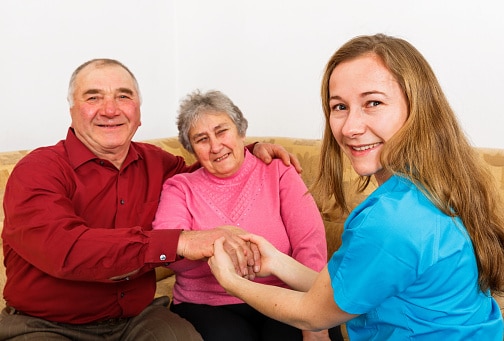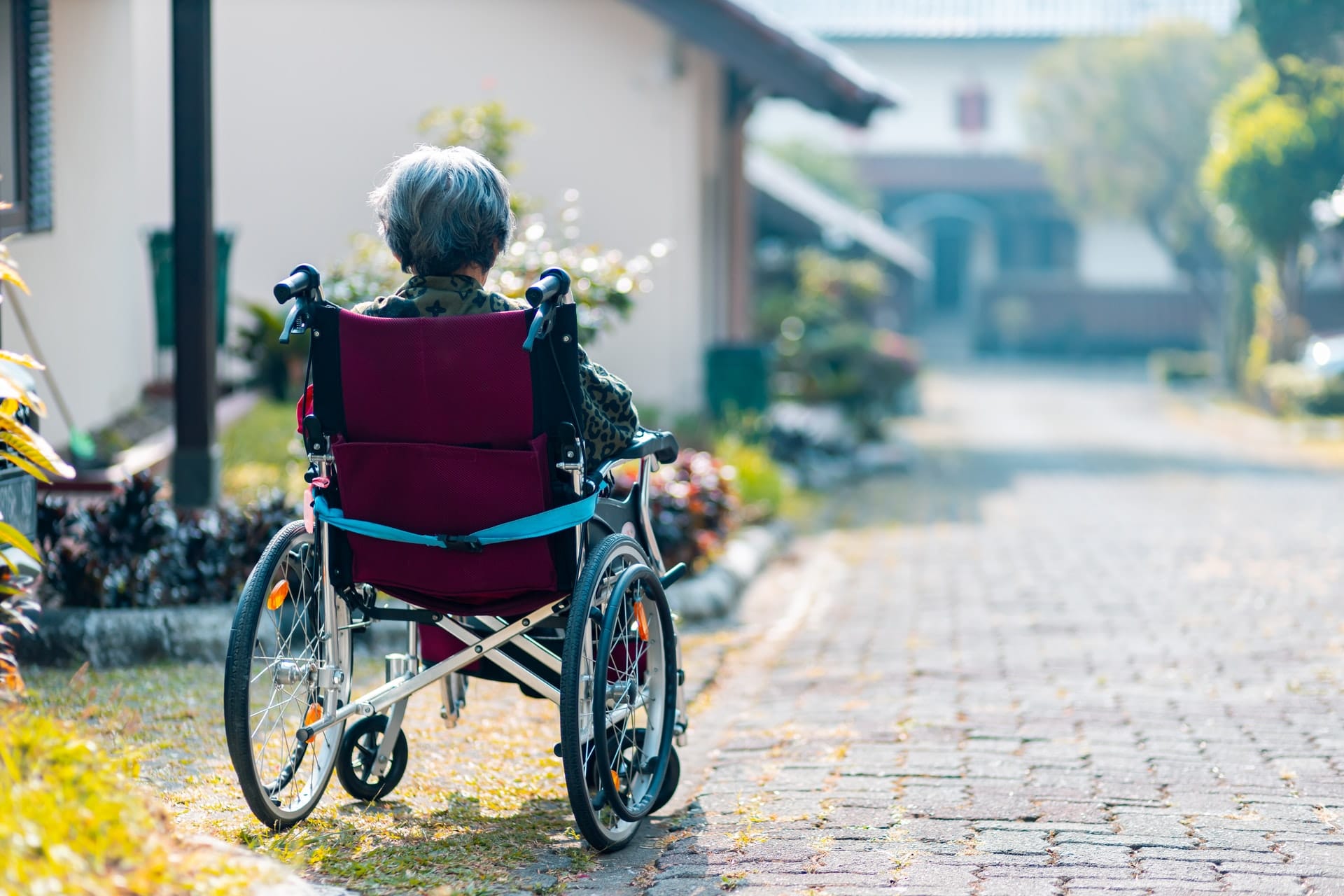
When Is It Time for Assisted Living?
Wondering if it is time for assisted living for your loved one is a common question for caregivers. As a caregiver, you might have been considering the question for months or possibly even years. Your loved one might have declined to continue the discussion as the thought of moving out of their family home and into an assisted living facility is frightening. But as hard as this decision may be, it is sometimes unavoidable, particularly if your loved one’s physical or mental health has steadily declined or they require more care than you can provide.
While moving is a difficult event for everyone involved, it is often the best thing to ensure your senior receives the care and attention they need. Plus, at assisted living facilities, your loved one will receive more hands-on care and have more opportunities to socialize – all while giving you peace of mind.
So how do you know when it’s the right time to move your loved one into assisted living? When faced with this decision, your loved one will likely feel many painful emotions, from anger to fear. After all, you want them to feel as comfortable as possible during this change and do what you can to ease these feelings.
Knowing when to make this move is challenging, and timing is everything. Ultimately, your decision comes down to your senior’s ability to care for themself at home, their physical and mental health, and the potential for any needs that you will need to address in the future.
5 signs that is is time for assisted living
There are many areas of your senior’s life that you should consider when thinking about whether assisted living is the right path forward. Both the physical wellbeing and the mental state of your senior should be considered.
1. Assessing Activities of Daily Living (ADLs)
Activities of daily living, or ADLs, are the first things you should assess as you assess whether your loved one should move to assisted living. Your loved one’s ability to complete these tasks is a strong indication of how well they can manage their personal care.
Professionals have widely used this assessment since Dr. Sidney Katz first developed it in the 1960s. It has become a valuable tool to determine older adults’ ability to carry out essential tasks necessary in everyday life.
The Katz model categorizes ADLs into six categories:
- Bathing
- Feeding
- Dressing
- Toileting (using the restroom)
- Continence (bowel control)
- Transferring (getting in and out of bed)
The Katz model equally weighs each category, giving either a 1 (performing the task successfully) or 0 (unsuccessfully completing the activity). After calculating the numbers, the total is reviewed.
Higher scores indicate that your loved one is still relatively independent and capable of managing their care. However, a lower score is often a sign that they struggle with these essential tasks and might require more intensive care.
In addition to ADLs, professionals might also gauge instrumental activities of daily living, or IADLs to get deeper insights into the actual extent of care that an older adult needs. IADLs include tasks such as:
- Paying bills
- Keeping up on housework
- Cooking
- Socializing
- Driving, using public transport, or being able to travel outside the house
IADLs are calculated the same as ADLs, with numbers assigned to each category. Like ADLs, higher scores mean a higher degree of independence, while lower numbers show that more care might be necessary.
However, since these types of tasks are broader than ADLs, the scores are assessed differently. Moreover, the scores vary between men and women to prevent any possible gender bias in the assessment. Men are scored from 0 to 8, while women are assessed from 0 to 5.
You can perform these assessments yourself, although you should also seek help from your loved one’s physician to receive professional guidance.
2. Deteriorating physical health
The possibility of older adults developing a chronic health condition becomes much higher as they age. According to AARP, over 70 million adults aged 50 or older have at least one chronic illness. These conditions can range from dementia to heart disease and typically require more intensive care as the senior grows older.
In addition to chronic medical conditions, the likelihood of a medical emergency also progresses with age. If your loved one’s health is declining, or you are concerned that their cognition isn’t what it used to be, it may be time to consider moving into assisted living.
Look for signs such as:
- A recent fall or medical emergency
- A worsening chronic health condition
- Extended recovery times after illnesses or surgery
- Weakening grip strength, rapid fatigue, or general frailty
- Trouble performing ADL
- Deteriorating personal care (e.g., forgetting to shower, eat, or take medication)
Each year, one-third of older adults experience a fall. And according to the CDC, deaths related to falls have gradually increased in the last 10 years. Suppose your loved one has told you about a fall where he or she had difficulty getting up. In that case, you need to seriously consider talking to them about moving into an assisted living facility.
If you worry that your senior won’t receive medical aid in time if an emergency strikes, an assisted living facility could provide you peace of mind while ensuring your loved one is cared for by professionals.
3. Diminishing emotional state
Humans are social animals who require regular interaction to uplift our minds and spirits. Unfortunately, senior social isolation is a growing problem among older adults. Loneliness can exacerbate existing health concerns and lead to greater cases of depression and anxiety.
In addition to checking their physical health, you should also monitor your loved one’s emotional state. Signs that their emotional wellbeing may be at risk include:
- Increased stress or depression
- Neglecting to engage with friends, whether on the phone or in-person
- Not wanting to leave the house, or displeasure while out of the house
- A lack of interest in interests or hobbies
If your loved one is feeling becoming more lonely, moving may be in their best interest, especially if there is no one close to them to perform routine checkups. Your loved one will have many opportunities to build new friendships and try new activities at an assisted living facility.
4. Declining living situation
Many reasons could cause your loved one to neglect their surroundings. They might experience a decline in their health that leaves them physically unable to manage routine housework. Or, if their mental state has declined, they might be unaware of the condition of their home. Look for signs like:
- Greater than average amounts of clutter
- Stacks of unopened letters, bills, and other mail
- Expired or inedible food, or duplicate purchases of the same products
All of these might be telltale signs of dementia or another mental health concern. You should schedule an appointment with your loved one’s physician as soon as possible.
5. Difficulty managing finances
It is not uncommon for older adults to struggle with their financial obligations as they age. Bills, insurance forms, and more can quickly accumulate because they lack the motivation to make payments or cannot do it themselves.
Dementia and other cognitive diseases can also impact your loved one’s capacity to process conceptual thoughts and complete complex activities like calculating bills. They might have difficulty filing their taxes or paying more than one bill at a time.
Additionally, scammers often target older adults – sometimes even their own family members. Fraud can leave your loved one in a critical financial state that hinders their ability to care for themselves.
As you determine whether to move your senior into assisted living, make sure you assess your loved one’s ability to manage their finances. This change ensures they receive hands-on assistance from professionals who can notice when something goes amiss and alert you before it’s too late.
Be honest with yourself
Watching your loved one age – particularly if it is your parent – is incredibly difficult, but seeing their health and wellbeing deteriorate can be even worse. As you look at the signs, you will need to be honest with yourself about their health, safety, and quality of life.
If your loved one develops a critical health condition or suddenly experiences rapid physical or mental decline, a care home can offer them the vital care they need. But if they still are in fair shape and only require extra support with ADLs and perhaps more social interactions, an assisted living facility is a viable option.
Assisted living can keep your aging parent healthier, safer, and give them a better quality of life. It might take some time to adjust to the transition, but many elders eventually welcome having a higher degree of support and more social engagement occasions. As for families, moving a loved one into assisted living reduces some of the responsibilities that come with juggling caregiving duties.
Related Articles

Elder Law Attorneys: A Comprehensive Guide
If you are someone who is taking care of a senior or has an elderly loved one, you should consider working with an elder law attorney. Though you may not expect it, individuals begin to face new and more complex legal concerns as they get older. Actions that may have seemed trivial when they were […]

When Is It Time for Assisted Living?
Wondering if it is time for assisted living for your loved one is a common question for caregivers. As a caregiver, you might have been considering the question for months or possibly even years. Your loved one might have declined to continue the discussion as the thought of moving out of their family home and […]

All About Adult Day Care: Community and Costs
Adult day care is a fairly new concept for caregivers. The basic idea is to provide a secure place where seniors can enjoy social activities during the day and be provided nursing care as needed. It’s a hybrid model of eldercare that prioritizes community. At the same time, seniors get help with common custodial tasks […]

Respite Care: An Overview
Caregiving can be overwhelming at times. That’s why taking a break is essential for recharging your battery. Respite care, also called short break care, is a way for caregivers to get temporary care for their loved ones so they can take some time to rest. Getting this “me time” of respite care can renew the […]

What is a Mechanical Soft Diet? Explanation, Preparation, and Meal Ideas
This article has been medically reviewed by Dr. Martin Duggan in 2021. This content is not intended to be a substitute for professional medical advice, diagnosis, or treatment. Always seek the advice of your physician or another qualified health provider with any questions you may have regarding a medical condition. As a caregiver, you may […]

Benefits for Seniors with Disabilities
Oftentimes, seniors with disabilities qualify for health and financial assistance programs. However, they may be unaware of them or are confused about the eligibility requirements and enrollment process. Let’s go over the key programs for seniors with disabilities so that you have the information you need to get the benefits you deserve. Note on the 3 […]